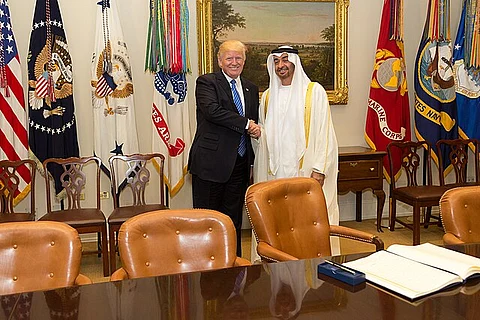

U.S. President Donald Trump stopped in the UAE on Thursday, focusing on collaboration on artificial intelligence (AI) in this part of his Gulf tour. The UAE wants to be a global center for AI. As part of an agreement, the UAE plans to purchase 500,000 advanced Nvidia chips annually to support its efforts to create data centers. Although concerns are being raised about security, an agreement was finalized related to a U.S.-UAE technology framework agreement that states a common commitment to technology security.
While in Qatar earlier, Trump pointed to $42 billion in Qatari defense purchases, including a $10 billion investment in a U.S. military base. Qatar Airways announced an agreement to purchase up to 210 Boeing jets. Trump voiced what he believes to be a collective commitment by Gulf allies to security in the region while visiting the Al Udeid Air Base facility: Saudi Arabia committed to $600 billion worth of U.S. investments and a total of $142 billion in arms sales during the trip.
Trump announced progress toward a nuclear deal with Iran, saying Tehran had agreed to deal points. His administration also lifted sanctions on Syria, after which the interim President of Syria, Ahmed al-Sharaa, met with Trump, who urged him to develop ties to Israel. The new policies represent a departure from previous positions in the U.S. and have produced various regional reactions.
Trump differentiated his Gulf diplomacy from that of his predecessor, Joe Biden, and cited Biden's 2022 "fist bump" with Saudi Crown Prince Mohammed bin Salman as inadequate in helping to establish diplomacy. Trump emphasized that his visit to the Gulf was punctuated by personal relationships, while his administration eased AI chip export controls that had been tightened by Biden out of concern about exploitation by the Chinese military.